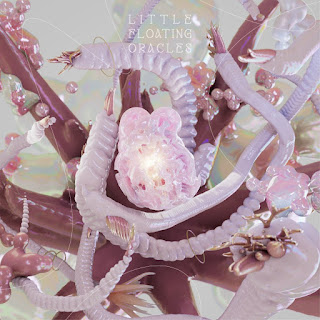Music speaks of untold stories.
I don’t know if I bring music directly back from my dreams but what is sure is that my music is definitely very influenced by my dreams and the related feelings and emotions that overflow from my subconscious to the awake part of my life.
It’s happened in my life that waking up from a dream I could clearly remember a melody or some sort of rhythm that then I couldn't stop singing and repeating for the entire day.
But I’ve to say, it has been pretty rare.
Every day, as a morning routine, I’m used to remembering and sometimes also to keep note of my dreams, training both my subconscious and conscious part to keep an open dialogue and to listen to each other without judgment.
I call dreams our “parallel life” because we spend so much time of our life sleeping and while we sleep we elaborate a lot of things, as well as make a full check up of our psycho-physical state.
With our body-mind we can go everywhere, we can travel in space and time in a blink of an eye.
I have made my music on ancient planets, parallel realities and far clusters of galaxies way beyond even my imagination.
What advice would you give to someone starting on the music path?
Define your comfort zone, be aware of it and then put yourself out of it, stretch its boundaries, question and challenge yourself and listen to the needs of your body..
It’s not a competition, it’s not about time, money or fame, it’s about who you are.
Listening is revolutionary.
I think we can all agree that there are several ways of listening and that all of them are totally subjective.
Listening is for me one of the powerful ways to immerse myself into unexplored worlds that activate my subconscious as well as keep myself in the “here and now.”
I think one of the main characteristics of humans is the behavior of seeing everything from their point of view, forgetting most of the time how narrow and how related to senses our vision is.
Our senses are tools pretty limited and definitely trained by the environment, cultural background and circumstances in which we grew up as well as the experiences we make during our life.
Music for me is the midpoint between our need for expression and a powerful “translator” that brings different realities into dialogue.
For your most recent album, Little Floating Oracles, which came first, the music or the concept?
The music as well as the concept came first.
But I had clear in my mind which kind of aesthetics I would like to explore for the album.
Then I was lucky enough to have been working on another project with Riccardo Franco-Loiri aka Akasha, who definitely was the right person to develop my ideas and bring them to the next level.
He combined studies on embryology and scientific aspects with atavistic knowledge regarding the otherworldly soul, taking inspiration from the Upanishads, to literally give life to a piece of art that deepens its roots into a surreal environment in which symbolic forms and dynamism coexist.
He modeled all the main elements of the artwork in Virtual Reality, valuing gesture, fluidity, speed of execution and the infinite possibilities of punctual intervention.
Furthermore, Akasha used OpenAI DALL-E 2, a new AI system that can create realistic images and art from a given image or textual prompt, taking the dialogue with technology to a further level. Thanks to this new tool, the AI then created a number of variations of the artwork used for the three singles Oracles, Oneiros and Adela.
What would you like to try that you have not tried yet?
I would like to start learning peculiar singing techniques like throat singing, or train myself to circular breathing to then experiment with them in a creative way.
A review of Little Floating Oracles
https://atomi.bandcamp.com/album/little-floating-oracles




